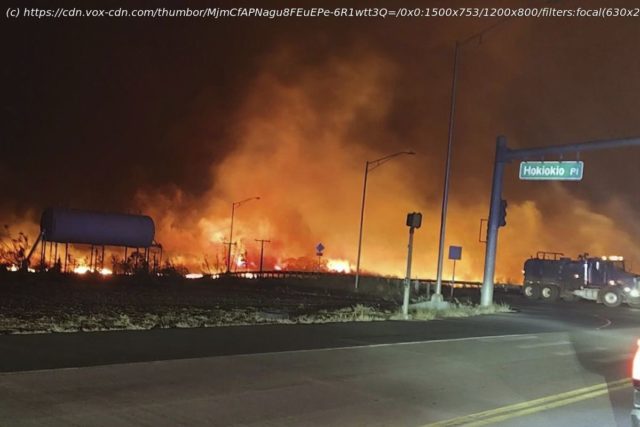Wildfires on Maui have razed buildings and forced people to evacuate. What made them so devasting?
several wildfires have engulfed parts of the Hawaiian island of Maui in flames, killing several people, burning multiple homes and businesses, and forcing more than a dozen people to flee into the ocean for safety.
Numerous fires — which have so far burned hundreds of acres in Hawaii — have scorched parts of Lāhainā, the largest city on the west side of the island, all but destroying a popular tourist strip. Hospitals are overrun with burn patients, thousands of people have lost power, and as of Wednesday morning, 911 service was down.
“We have suffered a terrible disaster,” Hawaii Gov. Josh Green said Wednesday. “Much of Lāhainā on Maui has been destroyed and hundreds of local families have been displaced.”
Wildfires were once rare in Hawaii, largely ignited by volcanic eruptions and dry lightning strikes, but human activity in recent decades has made them more common and extreme. The average area burned each year in wildfires, which tend to start in grasslands, has increased roughly 400 percent in the last century, according to the Hawaii Wildfire Management Organization, a nonprofit group.
Part of the problem is that climate change is making Hawaii drier, so it’s more likely to ignite when there’s an ignition event (most Hawaii wildfires are sparked by humans, though the source of the current blazes is unknown). The spread of highly flammable invasive grasses is also to blame. Native to the African savanna, guinea grass and fountain grass, for example, now cover a huge portion of Hawaii, and they provide fuel for wildfires, as Cynthia Wessendorf has written in Hawaii Business Magazine.






